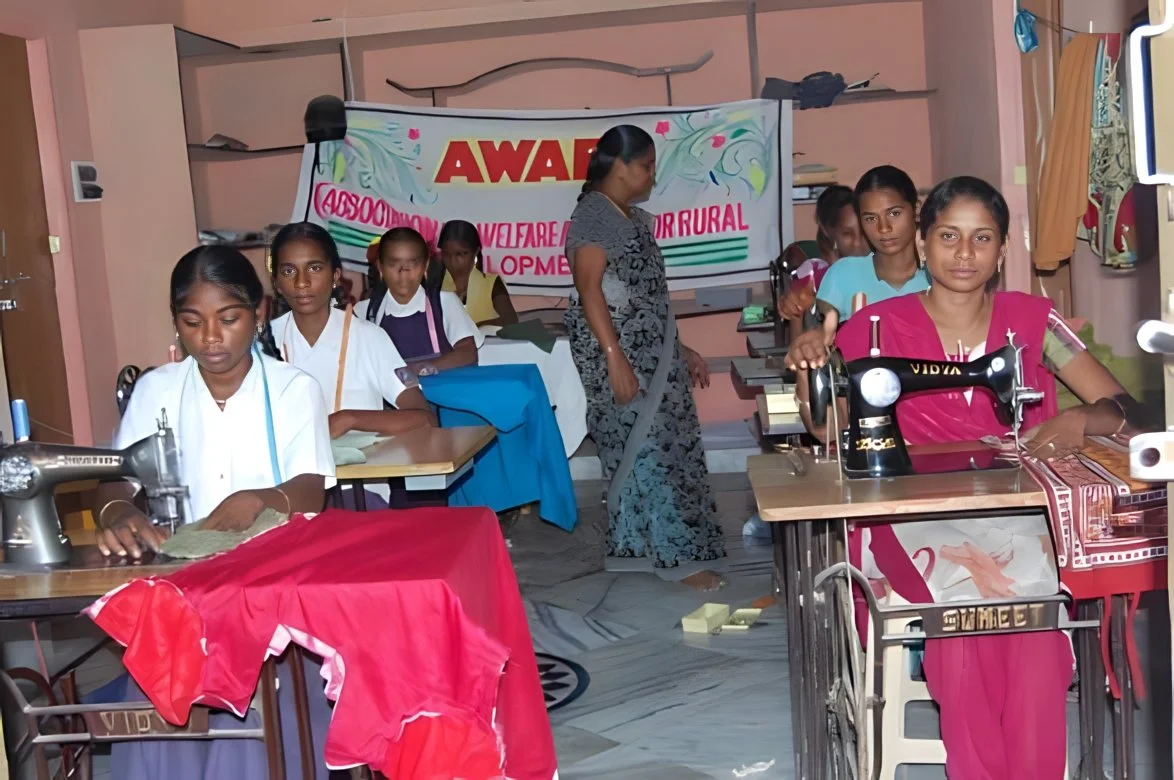
Vocational Training for Girls Employed at Lime Kilns
Many Indian school-aged children still work as labourers in degraded, polluted environments. Within a 10 kilometer radius of Piduguralla, in Andhra Pradesh, there are about 300 lime kilns and rock crushing factories where hundreds of poor labourers are employed.
Approximately 700 child labourers (aged 5-16) work in kilns, quarries, and factories, for 8 to 10 hours daily. The children earn only 50 US cents a day carrying waste materials, breaking stones, and carrying baskets of lime. They live in small huts around the kilns, without no water, electricity, or sanitation.
Project Outcomes
The project financed by the British and Foreign Schools Society through CHEC has helped 120 girls through counseling of parents and vocational training in tailoring and embroidery. CHEC’s local partner, the Association for Welfare Activities for Rural Development (AWARD), opened a tailoring and embroidery centre at Rasul Pet, Piduguralla, close to the children’s homes.
An embroidery teacher and a tailoring teacher were appointed and taught an initial group of 58 girls who were working in lime kilns for six months. A second group was taken on for the second half of the year. The girls spent two hours a day at the centre, learning how to make garments, how to stitch blouses, skirts, petticoats, shirts, pants, and dresses. They received some basic education in mathematics and other skills. The aim was to give them and their families another source of income instead of labouring.
-
Piduguralla, Andhra Pradesh, India
-
2017
-
To retrain girls currently working in dangerous conditions in kilns and rock crushing factories in sewing and embroidering.
-
New embroidery centre opened at Rasul Pet, Piduguralla.
120 girls training in tailoring and embroidery.
Girls also received basic education in mathematics and other sills.


